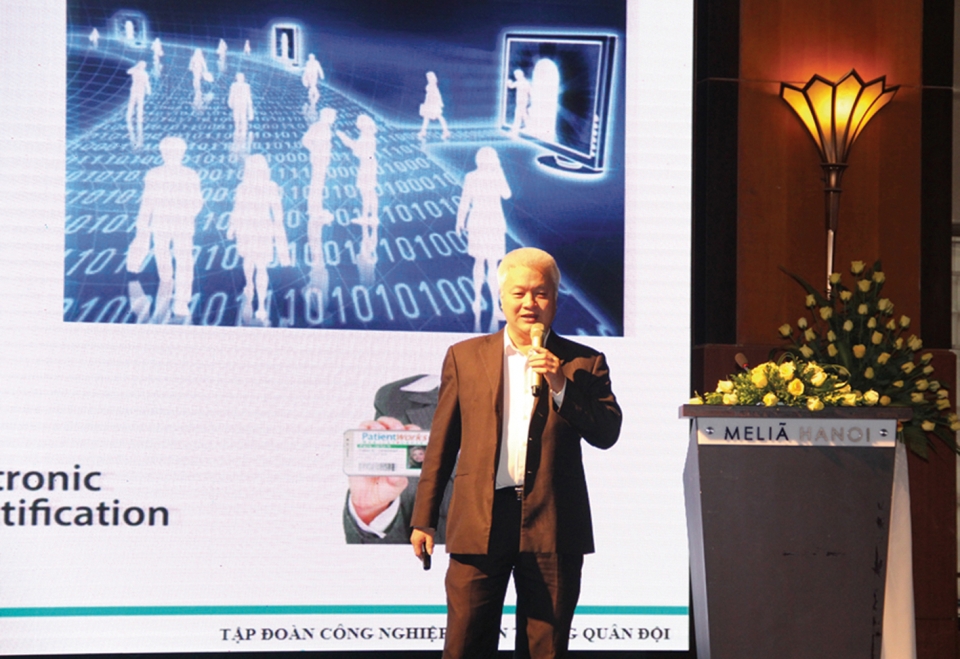
Vietnam can make breakthrough amid Industry 4.0
Latest
| TIN LIÊN QUAN | |
| A way forward for ASEAN | |
| Industry 4.0 brings about opportunities for Mekong integration: PM | |
Mr. Le Quoc Huu, Head Architect of Smart City project of Viettel Group highly appreciated the growing potential of Vietnam’s digital economy in the Fourth Industrial Revolution (Industry 4.0). According to Mr. Huu, Vietnam’s e-commerce revenue had increased by 50% in one year (from 2015 to 2016). Forecasts show that in 2020, the revenue will reach 5 billion USD, with the growth rate of 35% per year. It will become the fastest growing market in the world, even 2.5 times faster than Japan.
 |
| Le Quoc Huu, Head Architect of Smart City project of Viettel Group. |
He said that the application of new technology would help reduce costs, improve product quality, improve labor productivity by using automation in manufacturing, Big Data analysis and Business Intelligence application, supply chain connectivity, connected data platforms exploitation, digitalization.
Technology supports the development of innovative products and services, creating completety new ways to meet the demands of the public. It influences and creates tremendous changes in the global supply chain and how the world’s supply-demand works; it will make a limitless market through cyberspace such as online shopping, cross-border shopping; making breakthrough by appling knowledge to create innovative startups.
“Hence, less developed countries like Vietnam have more advantages, compared to developed countries that we are not bound by any limitations so we are free to advance rapidly without any hesitations.” – said Mr. Huu.
However, in order to make a breakthrough, Vietnamese companies will have to overcome various challenges of the Industry 4.0. Le Quoc Huu pointed out that, Industry 4.0 will lead to fierce competition between domestic and international enterprises. Innovative businesses adopting digital technology platforms will have the upper hand against traditional businesses. Foreign companies who have acquire the Vietnamese market will face new competitions in the same field. Vietnamese goods will have to compete against foreign products entering the market through e-commerce.
Besides, the biggest challenge to Vietnamese enterprises is the shortage of human factor: high-quality human resources, IT personnels.
In reality, Mr. Huu said, Vietnam’s legal framework for cross-border data flows is still “unopened” compared to other countries in the region. On the matter of security, Vietnam’s network security index stood at 101 of 193 countries. Therefore, Vietnam needs to take measures to protect its safety and privacy, as well as the confidentiality of its business and social life. Vietnam should come up with new laws to support e-transactions such as: the Law on Electronic Documents, the Law on E-Transactions and the Law on Digital Signatures.
Also, Vietnam still have to figure out how to adapt to the digital economy, because most companies in Vietnam are SMEs with a limitation of financial capacity and business management, innovation ability is still at a modest level. Moreover, the challenge of implementing e-commerce, logistics services is still poor compared to other countries in the region; competing with big foreign companies on matters like the habit of using cash for payments. Up to 90% of payments in Vietnam are paid in cash, it shows that the barriers of adopting digital economy are not technical issues, but building trust.
In order to develop the digital economy, the chief architect of Viettel said that Vietnamese enterprises need to be fully aware of the impacts of Industry 4.0 and knowledge of digital economy. Businesses need to update new technology trends, change management methods, apply science and technology in production, make innovations in the organizational model and business manner are the key issues that determine the existence and development of Vietnamese enterprises.
 | PM: Joining hands in building ASEAN Community in the Industry 4.0 As the host of the 2018 World Economic Forum on ASEAN (WEF ASEAN 2018), Vietnam has the responsibility to work with the WEF and ASEAN ... |
 | WEF ASEAN: Vietnam needs to seek new competitive edge in Industry 4.0 Vietnam and other countries at the same level of development should no longer see cheap labour as a strategy to maintain competitive edges in the ... |
 | Building smart cities – trend of Industry 4.0 Vietnam has made progress in applying applications of the fourth industrial revolution (Industry 4.0) in various areas of life, including smart urban development. |

















